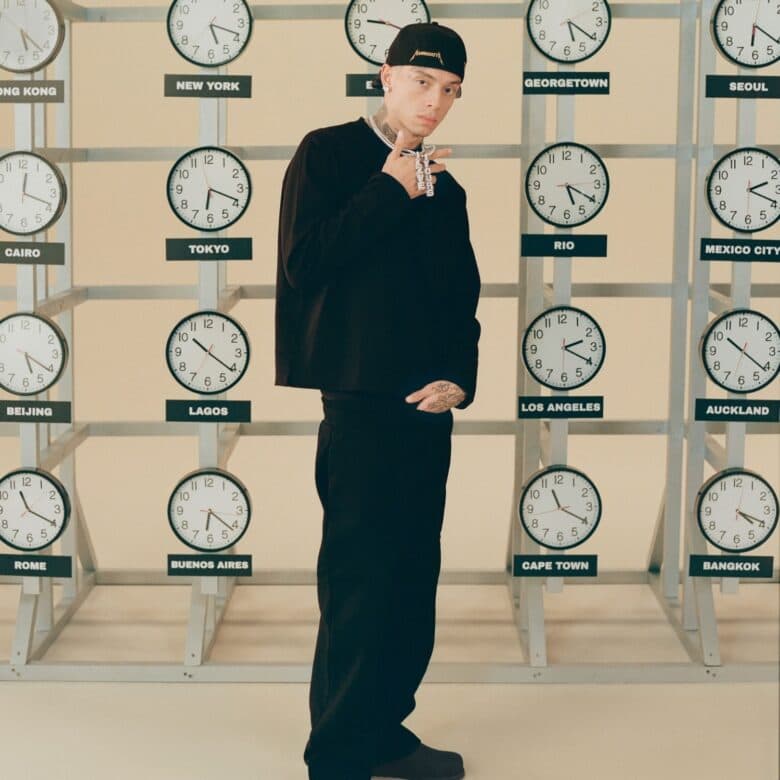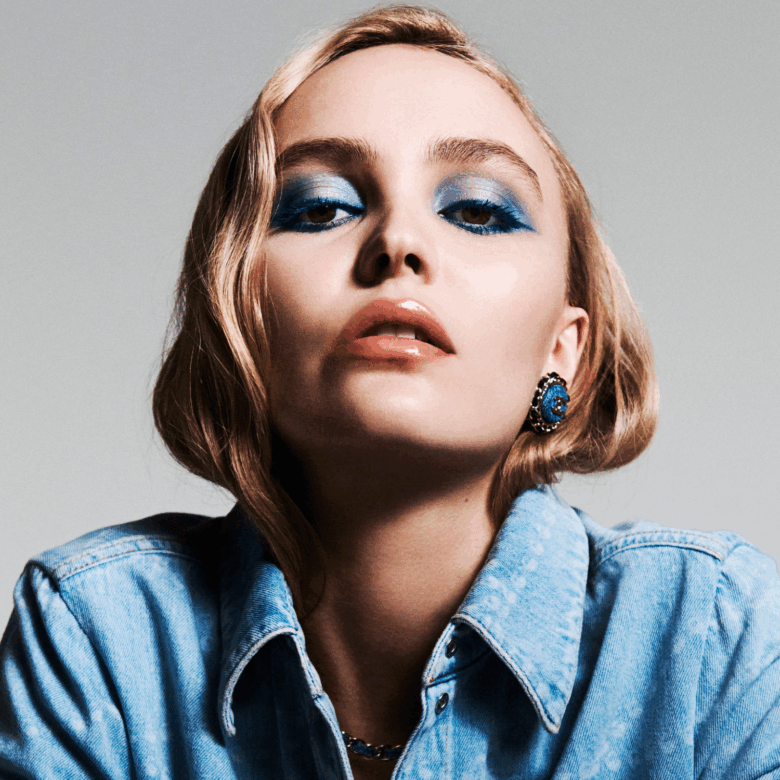There’s always a bubbling energy when an artist’s new era begins to unfold right in front of you — and that’s exactly what girli is charging up right now. With the release of her latest single, “Better Undressed”, she’s ripping open a new chapter: one that buzzes with defiance, tenderness and purpose. Known for her witty lyricism and shimmering pop production, girli is carving herself a new space that feels deeply her own in the contemporary alt-pop landscape.
This new track captures everything that makes her so magnetic: gritty production, bruised honesty and a sense of bedroom-pop sensibility. Beneath the layers of quips about craving reconnection with an ex, “Better Undressed” digs deeper below the surface. There’s an aching sense of longing to regain emotional intimacy, not just physical. It’s an unapologetically personal piece, yet it still carries the weight of who girli is — an artist whose voice echoes far beyond the studio.
That’s because outside of her music, girli has become just as known for her activism as her craft. Whether speaking openly about LGBTQ+ rights or using her platform to push for change, her politics aren’t performative — they’re personal. Between her volunteer work in Palestine and open callouts on stage, she has built a family, closely knitted by her devoted fan base. It’s a space where everyone belongs. And, although this song’s foundations were built more introspectively, that same sense of conviction weaves beneath everything she does.
Between the music and the movement, girli is in constant motion. We got into all of it: the new single, her politics and what’s coming next…

This new single dives into the messy, intoxicating side of hooking up with an ex. How did you approach writing something so raw and intimate without it feeling cliché?
I feel like, in the current climate of just completely saturated ‘Tiktok music’, where it’s all about clickbaity lyrics, I definitely knew this is a topic everyone can relate to. There’s so many songs about this. I wanted to write about the slightly sad side of that, the emotional element of how strange it is when we go from having this relationship with someone where we undress each other to this idea that all the clothes are back on now and we’re strangers. And actually, I don’t think I can be friends. I really wish I could be but I don’t think I can actually do this. I only want to know you in a way where I undress you. So I wanted to make it slightly more emotional. But to be honest, when I was writing I just wanted to have a really fun song to play at my live shows.
The song feels playful but also vulnerable. How do you balance humour and honesty when exploring sexuality in your music?
I feel like, as a person and a character, humour is definitely a big part of everything I post. I’m quite tongue in cheek. I try not to take myself too seriously. But then I am a sensitive girl, and there’s a lot of vulnerability in my lyrics. So that comes quite naturally to me. I think there are some sections of the song that are more emotional, like the pre-chorus. Then the verses are a bit cheeky. So kind of like going back and forth, which I think actually reflects what happens after a break-up.
How did the musical style of this single evolve — did the melody or production come first, or the lyrics?
I always go in with some kind of lyric already. My background is fictional writing. I loved writing short stories, and I wanted to be like a novelist before I got into music. So yeah, I always have little poems and concepts already floating around. I’m definitely a lyric girl.
Were there any unconventional techniques or sounds you experimented with to convey tension, desire or nostalgia?
A lot of the songs I’ve been working on recently, including this one, have been a lot more live music focused — playing, recording, tracking drums and guitars. I grew up listening to music in the peak indie sleaze era. I’ve always been a huge fan of indie music and bands going in and recording all the instruments live. When I started releasing music, I had a huge pop era. I grew up, you know, in the early 2000s, so that was absolute pop heaven. So I feel like there’s these two parts of me, the indie part and the clean, synth-pop part of me. Those kind of marry together really nicely on a lot of the songs I’ve been making recently. It was fun to just picture writing it, and thinking, How would I perform this? and looking at it from a performance perspective.
Were there specific influences — other artists, genres or even personal experiences — that shaped the sound of this single?
Usually, I’ll go into the studio with some references from other artists. With this sound, I was listening to The Wombats randomly on the day, having a nostalgic moment driving to the studio. So, I think some of those sounds definitely influenced it. In general it was quite organic.
How do you see your musical identity evolving through songs like this one — both in sound and in lyrical honesty?
I see it evolving more into me being a really live-focused artist. I’ve always loved performing. My high energy shows have always been quite a big element of how I connect with my fan base, and a big part of me as an artist. That’s just increasing in terms of how, now, I’m not a pop artist who is just in the studio.
You’ve been vocal about LGBTQ+ rights, feminism, and solidarity with Palestine — how do you navigate bringing that into your art without it being tokenised or diluted by the industry?
I feel like having a good team around me that really encourages and champions me speaking up for what I believe in, and then a dedicated fanbase definitely allows it to feel authentic. All those messages come from me and are all of my ideas — what I want to post, how I want to communicate these things. It’s not kind of going through a big label machine. I have quite a small team and it feels very authentic. Now fans have way more power to connect with their favourite artists. It’s about sharing, people using your music and reaching people online. It’s a lot more in their hands, which is really amazing. I think it allows for protest to come back into music, as it always inherently has. Music and protest go hand in hand.
Do you see your music as a form of protest, or as a space to heal and imagine beyond protest?
It depends on the song. “Better Undressed” is definitely more healing, fun and lighthearted. Everyone’s been through a break-up. It’s fun to release a song like this, where it’s just something people can scream into their hairbrush. But, there are other songs that I’ve released, and that I’ve got coming up, which are definitely more protest.

What role do you think musicians have in international struggles — like Palestinian liberation — especially when mainstream platforms try to silence those voices?
I think having a platform where you can reach people in a really personal way with your art means there’s an inherent responsibility attached to that. I think that music is one of the widest reaching forms of art, where you can bring people together across the world. There’s such a responsibility that comes with that. When it comes to talking about Palestine, that’s been an issue that’s been really close to my heart for a long time. I volunteered in Palestine in 2019. I think seeing musicians and artists who want to talk about it and use their platform for that is so powerful. It also speaks volumes when people choose not to use their platform, especially when they have huge ones. There are no ethical billionaires, and they shouldn’t have that kind of influence.
How has having a close-knit fanbase informed not just your politics, but your creative process — your sound, your visuals, your collaborations?
I think it’s definitely having a fan base that is very politically active, very LGBTQ+ and who listens to a real eclectic mix of genres. I have fans who are big pop fans, and then I have punk, rock or emo fans there. I think all of that has definitely influenced the way I approach what I want to talk about in my songs. It’s given me this freedom to experiment with loads of different kinds of sounds — because my fan base is such a mix of different genre fans.
What does “radical joy” look like for you right now, in art or activism?
Radical joy looks like freeing the nip and being unashamedly gay.
Without giving too much away, can you tell us what kind of sonic or emotional territory you’re exploring next?
Definitely, lyrically and emotionally, it’s a real eclectic mix. There’s some more politically-minded songs. There’s songs about my family and divorce. And there’s a song which is my version of “Good Luck, Babe”. It’s a little bit of everything.
How do you envision your evolving artistic identity influencing the politics of your next work?
I can definitely see myself becoming a little bit more of a riot girl. We’ll see!
- WriterKeira Oldfield




